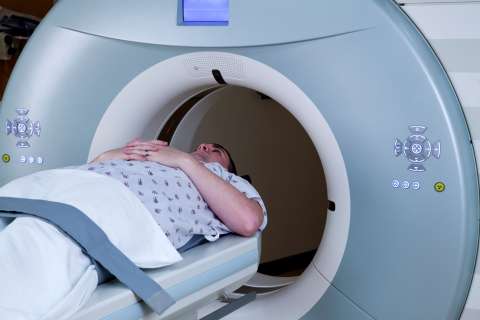FINDINGS
UCLA researchers have discovered that combining a vaccine developed at UCLA with other experimental therapies and FDA-approved treatments shows promise for reducing the size of advanced brain tumors. The immunotherapy, which is specifically intended to treat brain tumors, is called autologous tumor lysate-pulsed dendritic cell vaccination. It uses a portion of the patient’s own brain tumor and is currently being tested in humans.
In tests in animals, the scientists found that a combination of the vaccine and two different drugs that modulate distinct aspects of the immune system was more effective at allowing T cells to attack glioblastoma than the vaccine alone. The two added drugs were a PD-1 antibody blockade, which enhanced T cell activation inside the tumor, and an investigational drug called PLX3397, which reduces immune suppression within the tumor.
BACKGROUND
Glioblastoma is the most common type of malignant brain tumor in adults, and one of the deadliest. More than 12,000 people will be diagnosed with the disease this year, and the five-year survival rate for patients is less than 5 percent. It has a high probability of recurring after treatment and there is no standard therapy for recurrent glioblastoma.
METHOD
The team studied the approach in mice and on tumor samples from human patients.
IMPACT
The findings may point scientists to a process for developing more effective combination treatments for people with glioblastoma and other immunosuppressive cancers.
AUTHORS
The study was led by Dr. Robert Prins, a UCLA associate professor of Neurosurgery and Molecular and Medical Pharmacology and member of the UCLA Jonsson Comprehensive Cancer Center. The first author is Joseph Antonios, a student at the David Geffen School of Medicine at UCLA, and the co-author is Dr. Diana Moughon, a postdoctoral fellow at the Geffen School of Medicine.
JOURNAL
The study is published in the Journal of Neuro-Oncology.
FUNDING
The research was funded by the National Institutes of Health, the National Cancer Institute, the Isabel Neidorf Foundation, the Musella Foundation for Brain Tumor Research, the UCLA Graduate Division Dissertation Year Fellowship and the UCLA Medical Scientist Training Program.




